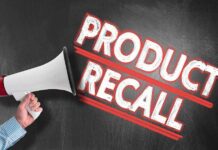In a significant move, the FDA mandates the termination of sales for counterfeit obesity and diabetes medications, spotlighting the intricate balance between pharmaceutical supply and patient safety.
At a Glance
- Pharmaceutical giants halt compounded versions of drugs Ozempic and Wegovy due to resolved shortages.
- Compounding pharmacies challenge FDA’s decision, citing premature shortage declarations.
- FDA’s directive raises concerns over potential black market alternatives for patients.
- Reports of adverse effects from compounded medications prompt FDA intervention.
FDA Steps In to Combat Counterfeits
The FDA has directed specialty pharmacies and online sellers to discontinue the sale of counterfeit versions of critical obesity and diabetes medications. This comes as a response to pharmaceutical companies, Novo Nordisk and Eli Lilly, who have been attempting to stop the production of cheaper, compounded versions of their drugs Ozempic and Wegovy. Their efforts are part of a strategy to reclaim control over the drug market and ensure the safety and efficacy of medications.
Pharmaceutical companies assert that compounding pharmacies are no longer necessary now that drug shortages are officially over. The FDA has been removing certain medications from the shortage list, a decision some compounding pharmacies argue is premature. These pharmacies are pushing back, filing lawsuits against what they see as abrupt policy changes, potentially harming patients who rely on affordable alternatives.
Legal and Safety Concerns
Compounding has been legally allowed only during times of officially declared shortages. Once declared over, creating compounded drugs becomes illegal, creating significant legal ramifications for pharmacies. Novo Nordisk and Eli Lilly insist they can meet current demands, a claim that contrasts with ongoing patient uncertainties. This legal stance creates a precarious situation for patients dependent on compounded medications, leaving them in limbo regarding continuity of care.
“Everybody knows that… [the] injections are going to come off the shortage list eventually, and patients need to be prepared for that,” said Scott Brunner, CEO of the Alliance for Pharmacy Compounding, an industry trade group.
The FDA has expressed concerns over dosing errors and adverse events related to compounded versions of drugs like semaglutide and tirzepatide. Over 392 adverse events related to compounded semaglutide and over 215 for compounded tirzepatide raise red flags. These issues underscore the complexities of regulating drugs outside their conventional supply channels.
A Broader Regulatory Landscape
The FDA’s directive aims to phase out unauthorized compounded and off-brand versions by the next year. However, this crackdown on compounding pharmacies raises fears about pushing patients toward potentially dangerous, unregulated black market purchases. The FDA remains vigilant, monitoring illegal online sales and the emergence of counterfeit drugs marketed under the guise of research substances not intended for human use.
The FDA’s proactive measures illustrate a broader regulatory intention to ensure public trust in pharmaceutical products. By curbing counterfeit sales and emphasizing safety, the FDA seeks to reinforce the importance of approved treatments, albeit at the cost of removing some lower-cost alternative options in the market.
Sources:
- https://www.npr.org/sections/shots-health-news/2024/11/20/nx-s1-5178102/ozempic-semaglutide-tirzepatide-compounding-pharmacies
- https://apnews.com/article/obesity-drugs-zepbound-shortage-fda-13d18b0e3e74a7f7355521bf8e38cb5b
- https://www.fda.gov/drugs/postmarket-drug-safety-information-patients-and-providers/fdas-concerns-unapproved-glp-1-drugs-used-weight-loss
- https://www.washingtontimes.com/news/2024/dec/19/fda-says-offbrand-versions-zepbound-mounjaro-must-/?utm_source=RSS_Feed&utm_medium=RSS











